Trump's 'dark and divisive' rhetoric energizes base but risks losing moderate voters
Some experts say it isn't a typical strategy but it worked for him in 2016.
After a weekend of stoking racial tensions, President Donald Trump continued his divisive political strategy on Monday, raising new questions about whether it would work as polls showed him falling behind with moderate voters.
He suggested in tweets that NASCAR had made a mistake banning Confederate flags and criticized the Washington Redskins and Cleveland Indians for considering changing their names in order to be "politically correct."
That follows back-to-back Independence Day weekend speeches in which he defended monuments to historical figures with ties to racism and attacked protesters as "angry mobs" whose "goal is to end America."
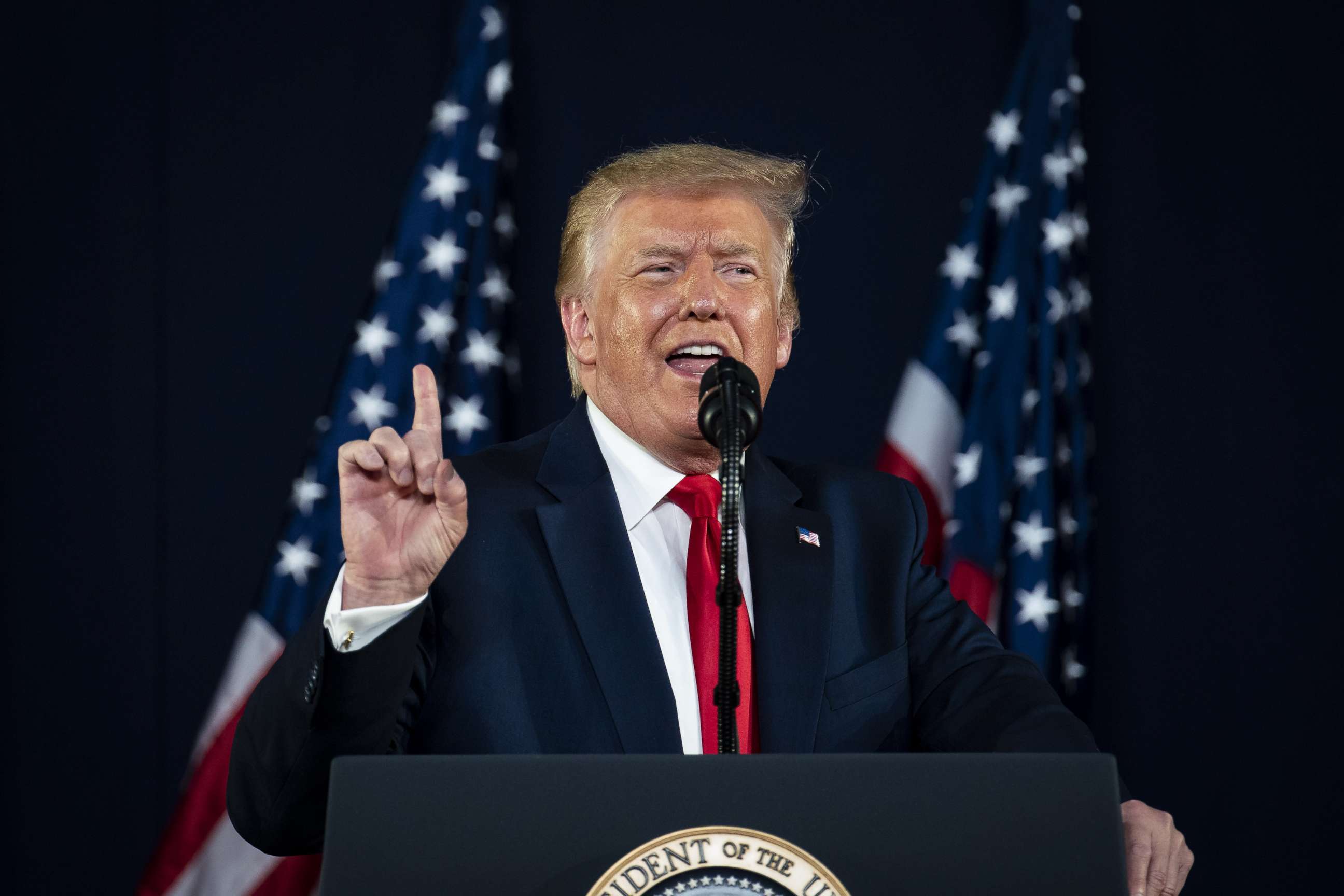
"In our schools, our newsrooms, even our corporate boardrooms, there is a new far left fascism that demands absolute allegiance," Trump said Friday at Mount Rushmore, positioned so his face was in line with the presidents considered among America's greatest.
"Make no mistake, this leftwing cultural revolution is designed to overthrow the American Revolution," he said.
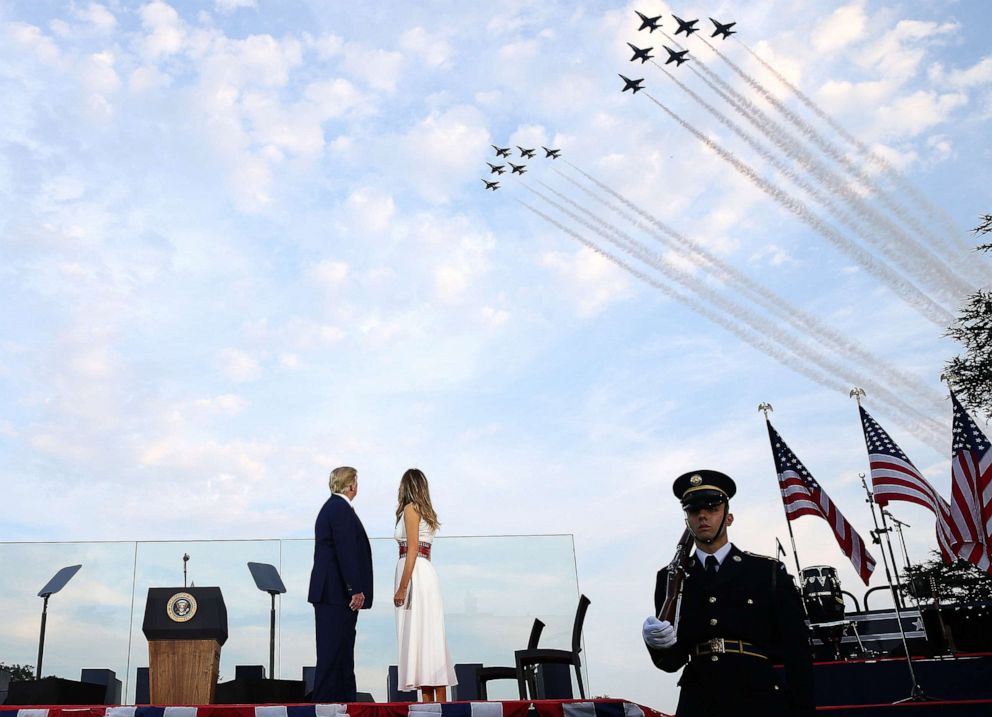
This version of "us versus them" rhetoric -- this time pitting Americans against Americans -- came amid extravagant displays complete with military flyovers and flashy fireworks that had the makings of a grand-scale reelection campaign rally.
"The radical ideology attacking our country advances under the banner of social justice. But in truth, it would demolish both justice and society," Trump warned Friday. "It would transform justice into an instrument of division and vengeance and turn our free society into a place of repression, domination and exclusion. They want to silence us, but we will not be silenced."
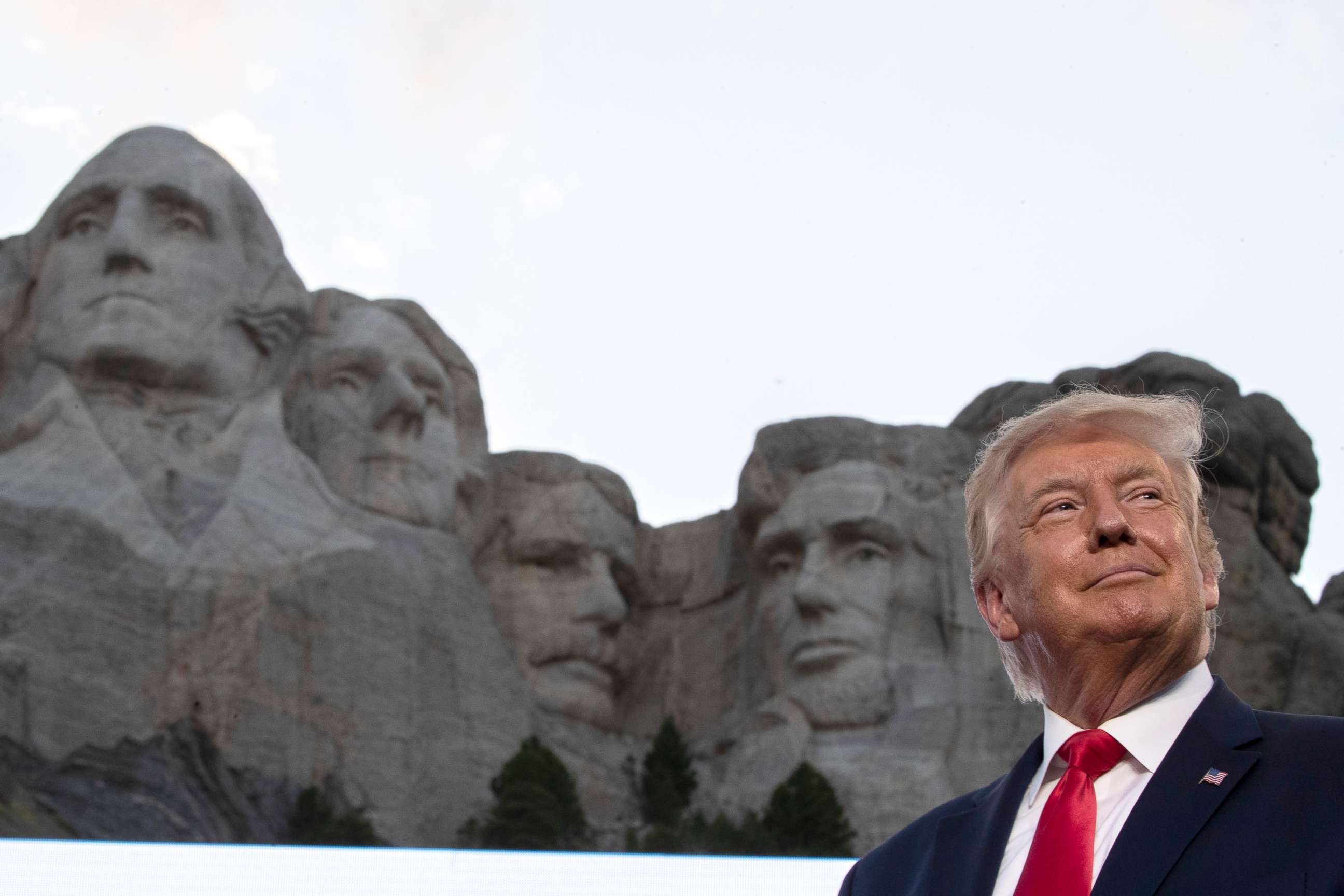
Press reports called the speeches overwhelmingly deemed "dark and divisive."
The White House was clearly sensitive to that characterization. Press secretary Kayeigh McEnany opened her press briefing Monday attempting to flip the script, calling Trump's tone "unifying and patriotic."
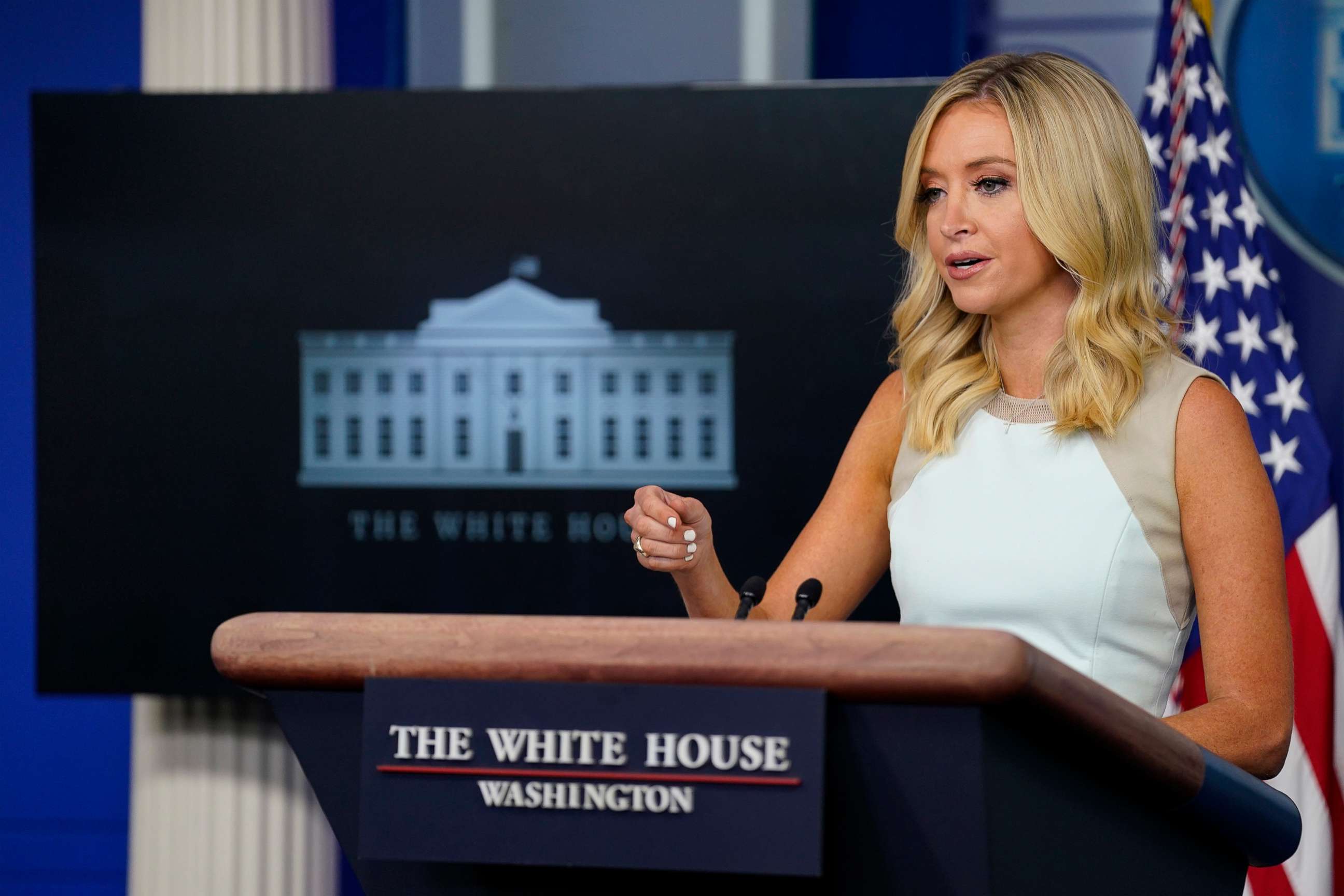
"Misguided movements such as defund the police seek to leave our communities more vulnerable than ever," McEnany said, before listing weekend shootings in New York and Chicago. It's that crime, she said, which "is dark, and it is divisive."
Although he risks losing a large swath of the country, some experts say the strategy works for an unconventional candidate like Trump.
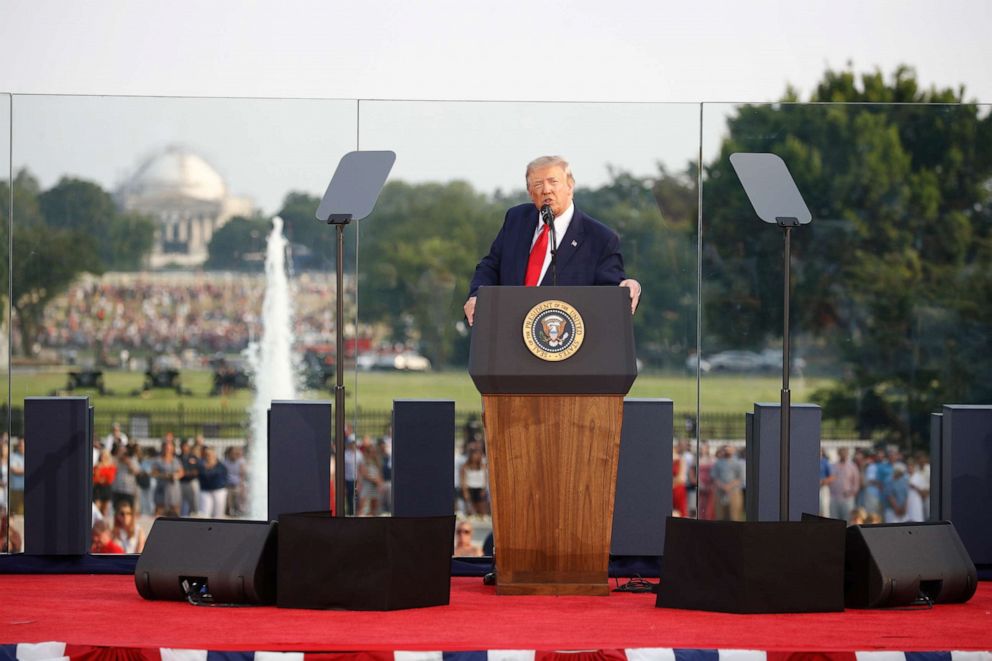
"He doesn't do it like most other politicians do. Most aim for the middle and avoid making inflammatory statements, but obviously a version of this strategy worked for Trump in 2016," said Robert Erikson, a professor of political science at Columbia University.
Erikson said one theory to explain Trump's use of "dark and divisive" language during such a tense time in the country is, given his bad poll numbers, the gamble is worth it.
"Given the polls today, he would lose if his campaign ran the normal course," Erikson said. "So if that's how you perceive that circumstance, and particularly if you enjoy taking extreme positions, which Trump really likes to do, you go there instead. You get the rise out of your base."
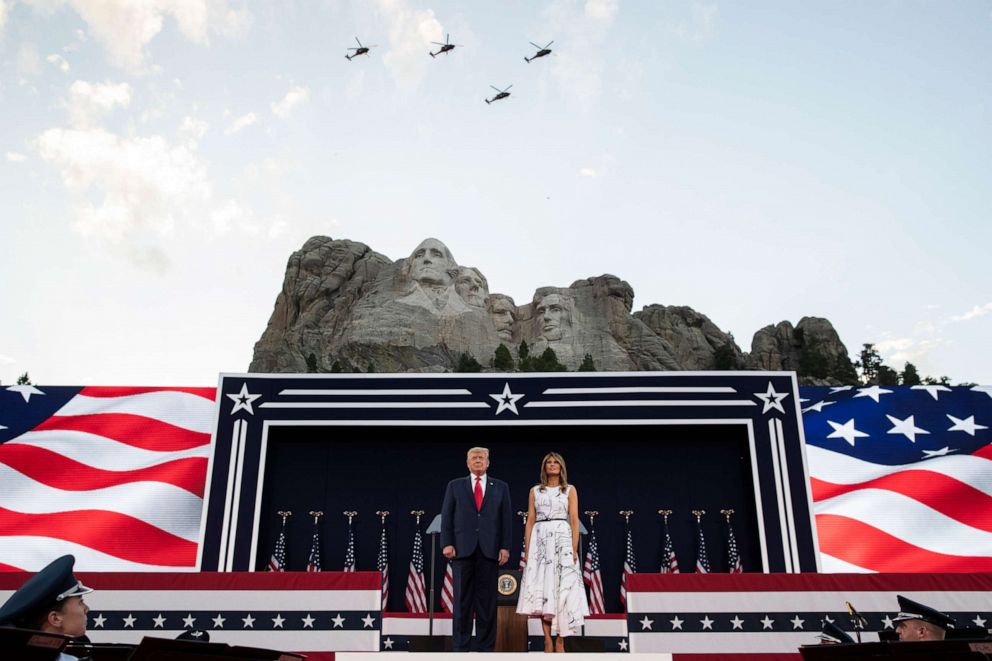
"Particularly when issues of race are involved, you never know," Erikson added, noting the campaign could be throwing language on the wall and seeing with what sticks. "He'll probably just take the Republican Party down with him but maybe, just maybe, it might work, because it might be a more racist country than most think."
Jay Barth, a longtime politics professor at Hendrix College in Arkansas and the city of Little Rock's first chief education officer, like Erikson, has studied American elections for decades.
"In elections we tend to see candidates have their base locked up and veer towards more moderate votes because majorities win elections -- but this feels very different," Barth said. "These messages that are much more divisive, anti-diversity and anti-tolerance, that's a place where Trump feels more at home."
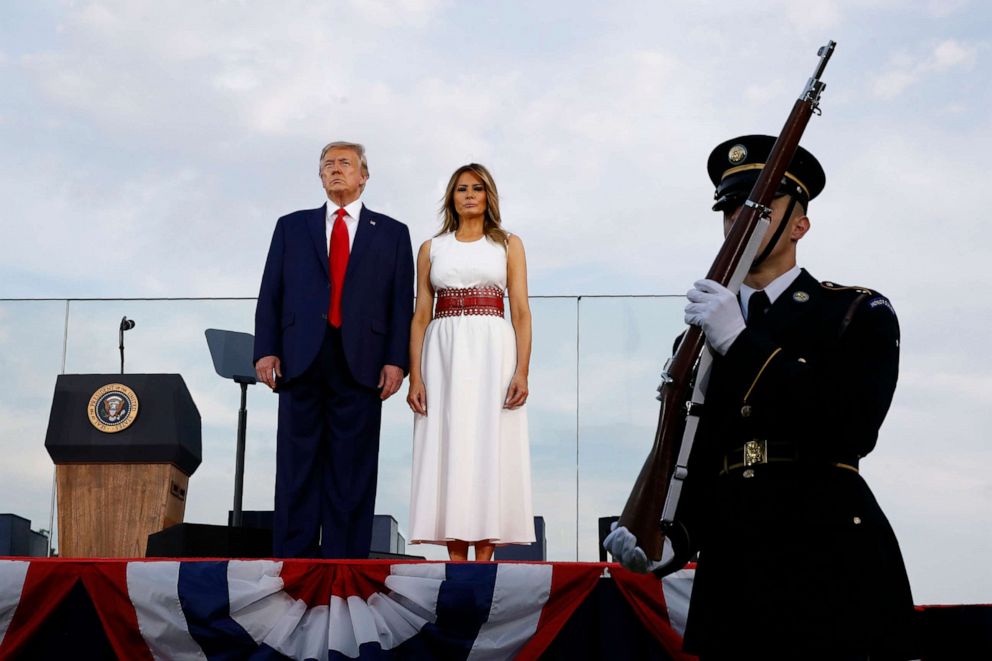
Barth goes on to argue there's value in Trump being able to be at ease rhetorically, even though "that leads to messaging that that can be pretty ugly to a lot of Americans."
He compared the president's 2020 strategy to that of 2016. Though the message has shifted further from anti-immigrant to anti-left, Barth said, "it's still definitely a rejection of the other, and the other takes a lot of different forms."
"But because now it is more directed at Americans, I think there's probably a little more resistance to it within the country," he added. "He's clearly not adept at making the pivot and making appeals to more moderate voters."
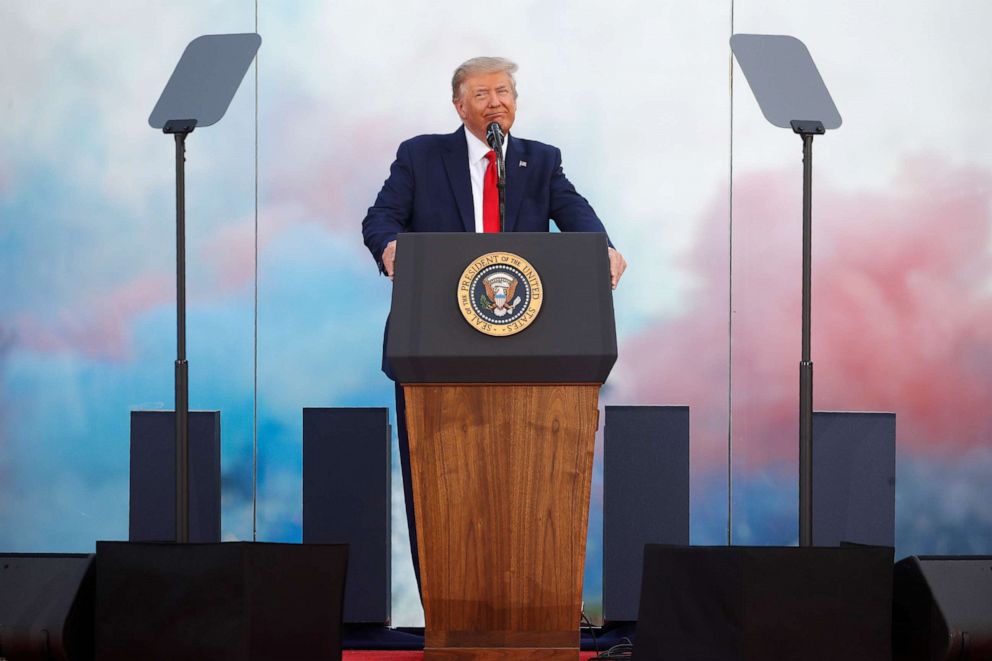
While Barth said he sees why Trump's team of speechwriters, led by anti-immigration hard-liner Stephen Miller, might design a speech with divisive language to energize the base, he, like Erikson, does not see it making sense for the president to reach for the middle as other candidates would.
"It makes a lot of sense if you say, 'This candidate is going to be really stilted or stiff and not very good when we're trying to make appeals that are more moderate,' then there is some logic in having a candidate who's more at ease and more natural -- but it isn't very logical when it comes to the ideological moderation that is needed to reach core voters," he said.
"He has been an exceptional political figure in a lot of ways," Barth added. "The question is, does that exceptionalism remain or do some of the rules of the game that have been established over time kind of come back to the forefront."




